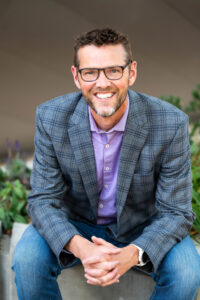What was the word every leader grew bone-weary of in 2020? “Pivot.”
On March 17, I asked the staff to write down everything they needed to do their job fully from home for the next 60 days. They laughed me off as being wrongly too conservative. Turns out I was wrong.
In March, we shifted all of our 2021 events onto Zoom. In April, we applied for a PPP loan and forecasted potential budget and salary cuts, all while sitting at the kitchen table next to my cooped-up daughter bemoaning online math. In May, we postponed our final Celebration Retreat for the 5280 Fellowship. In June, we were all feeling the ugly past and present of tragic racial fractions in America.
Everything felt uncertain. Nobody felt in control.
I used to make well-informed decisions once. Starting in May, I remade programming decisions multiple times using changing data I had never accessed in the past:
That all created deep fatigue, uncertainty, and redirection for us all: me, our staff, our then-current Fellows, and our incoming Fellows for the fall. Despite all the unrest and change, we saw amazing examples of God’s graciousness to Denver Institute. In both exhausting and energizing ways, we started experimenting with how our unchanging mission could be lived through redirected programming.
In late June, city and state leadership eased outdoor gathering restrictions. The 5280 Fellowship held its final Celebration Retreat, seven weeks delayed and socially distanced under a wedding tent on the Downing House lawn. Relationship-starved Fellows shared final conversations, relational closure, and a beautiful outdoor dinner on Saturday. Sunday we closed our rich but adapted year together by commissioning each Fellow unto the ministry of their particular industry: architects, nurses, musicians, and retail managers alike. It was a tear-filled grace of God for us all.
In both exhausting and energizing ways, we started experimenting with how our unchanging mission could be lived through redirected programming.
In late summer, we hosted our first online, multi-city public event to rave reviews. The Politics of Neighborly Love featured AND (&) Campaign founder Justin Giboney, pastor and author Scott Sauls, Stephanie Summers, the CEO of Center for Public Justice, and former Tennessee governor Bill Haslam. Before COVID, the live event we previously planned would have happened in two stages that day: an afternoon pastor’s event for 10-15 leaders, and the live, public event that evening for roughly 100 people. Moving this online and sharing the stream with other partner organizations, we had over 100 pastors or faith leaders and more than 600 registrants for the evening event!
In September, we kicked off the current 2021 class of the 5280 Fellowship. Our opening retreat gathered 14 Fellows and four leaders for a weekend with all of the awkward social distancing and masked conversations we had grown sadly accustomed to. But in God’s humor and grace, it was the same amazing weekend we had come to expect from the previous four years. A group of Christian professionals from diverse churches and industries drove up to the mountains as strangers. They left 40 hours later as fast friends with expanded imaginations about the place of their work in God’s redemptive story.
As a final grace from God in a disrupted year, we completed the 5280 Fellowship measurement project by late 2020. The assessment asked, are we really making an impact upon young professionals and the people and places where they work? If so, how? If not, what are we missing or how we can improve the experience? This was especially important as we prepared to launch CityGate — an initiative to take the 5280 Fellowship model and build it into a training community for other fellowship leaders in other cities.
The measurement project was run by external researchers trained through the University of Virginia’s Institute for Advanced Studies in Culture. They were thorough and honest. The results showed that in three of the five Denver Institute guiding principles, the 5280 Fellowship was creating real impact: Fellows were seeking deep spiritual health, embracing relationships, and thinking theologically about their work. In a fourth area, there was modest change: creating good work. And in a fifth, there was only minimal impact, statistically speaking: serving others sacrificially through work. The results were a wonderful way to confirm our proven impact, but also to help us better encourage Fellows in their work as civic engagement, justice, and service.
The year 2020 held so much disruption for all of us. Despite the pain, confusion, or frustration, we sensed the Lord’s grace to and through us in the work of Denver Institute and the 5280 Fellowship. As we reformatted event details and revised Fellowship programming, the collective stress we were all living under gave way to a unique and unexpected emotion as 2020 drew to a close: gratitude.

Brian is the VP of Formation here at DIFW and also leads our 5280 Fellowship program. Prior to landing at DIFW, he served in pastoral ministry for thirteen years and at Denver Seminary for four years. His vocation includes moving ideas out into life through relationships and conversation – whether that applies to God, work, the Church, good beer, or Liverpool Football Club. He married way out of his league, and spends most of his free-time being parented by his two daughters.